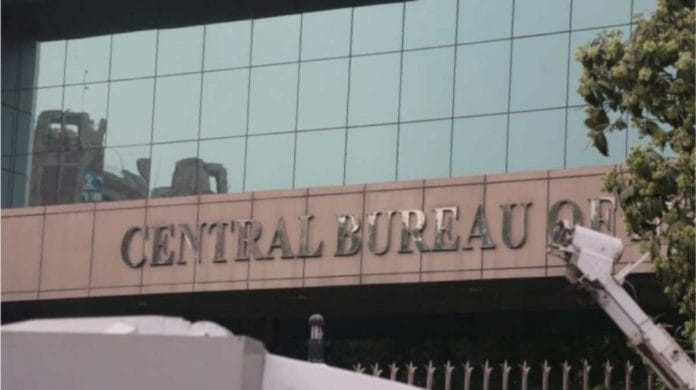New Delhi: A parliamentary committee on Tuesday asked the government to assess the need for amending existing laws or bring out a new legislation to clearly define the mandate of the CBI and vest more power in it.
The recommendation came after the Central Bureau of Investigation apprised the panel that its investigations are impeded by the withdrawal of general consent by states, mainly those ruled by opposition parties.
CBI has apprised the Committee with great concern that it is unable to take up investigation of new cases in the absence of general consent of the concerned states, especially, in the cases of bank fraud/economic offences and corruption involving central government employees, where there are allegations of misappropriation of huge amount of public money or primarily, the involvement of officials of central government or central PSUs in the commission of criminal misconduct, the panel said in its report tabled in Parliament on Tuesday.
The committee agrees with the view of the CBI that withdrawal of general consent by states impedes investigation, the Parliamentary Standing Committee on Personnel, Public Grievances, Law and Justice said in its 106th report on Demands for Grants (2021-22) of the Ministry of Personnel, Public Grievances and Pensions.
The Committee, therefore, recommends the government to assess if there is a need to amend the existing laws or bring out a new law altogether in order to clearly define the mandate of CBI and vest more powers in it, it said.
Eight states Mizoram, West Bengal, Chhattisgarh, Rajasthan, Maharashtra, Kerala, Jharkhand and Punjab — have withdrawn general consent to the CBI to exercise its powers under the Delhi Special Police Establishment (DSPE) Act, 1946.
According to Section 6 of the DSPE Act 1946, the CBI needs the consent of the state government to exercise its powers and jurisdiction in any area of the state.
Following the consent, the Central government, through a notification under Section 5 of the DSPE Act, extends the powers and jurisdiction of the members of DSPE (CBI) to the state to conduct the investigation.
The consent accorded is generally known by the terms general and specific consent.
Under general consent, members of the DSPE (CBI) have the powers and jurisdiction to investigate the offences notified under Section 3 of the DSPE Act in a state (not being a Union Territory or railway area) in accordance with the conditions stipulated by the government.
Specific consent is valid for the investigation of a specific case/offence only.
Cases are referred to the CBI, on the basis of concurrence of the state governments, by the high courts as well as by the Supreme Court.
The parliamentary committee, headed by BJP MP Bhupender Yadav, also said the CBI is in grave need of cadre restructuring and recommended to the government that this be done at the earliest.
The government may also explore the feasibility of inducting officers up to the rank of DSP as well as specialists into CBI through direct recruitment besides deputation. The Committee is of the considered view that it is important to align the human resource architecture of CBI to enhance its core competencies and improve its performance, it said.
There were 1,377 vacancies in the CBI as against its sanctioned strength of 7,273, as on January 31, 2021.
The CBI has apprised the Committee that due to the “deputationist character” of the bureau, there will always be certain vacancies, the report said.
CBI also opined that deputation brings in newer expertise and newer ways of tackling investigation issues. CBI has further informed the Committee that its approved cadre strength in all ranks is 7,273. It has also said that the strength of the Bureau has been increased on various occasions but overall restructuring in a holistic manner has never taken place, it said.
The Committee believes that the performance of CBI is invariably linked to the strength and quality of its personnel, the report said.
An organisation is only as good as its people and an understaffed organization is usually overburdened, it added.
The committee said it was concerned to note that the Centralized Technology Vertical (CTV)-CBI, International Centre of Excellence in Forensic Science and International Centre of Excellence in investigation have not yet materialised.
It requested the CBI to prepare a road map elaborating how long it would take for the three ambitious projects to come into existence.
The committee is of the considered view that these three projects will strengthen the core competencies of CBI and greatly enhance its investigation capabilities and therefore, can brook no further delay, the report said.
The CBI proposes to set up the CTV, a state-of-the-art technology centre, and build in-house central capacity for supporting specialized crime investigations dealing with digital forensic analysis, forensic accounting and fraud analytics, it said.
It is envisaged that the CTV will be equipped with the forensic expertise along with the right set of tools required for analyzing the data to identify the patterns, trails, frauds, discrepancies etc. and provide support to the investigations of complex cases, the report said.
Also read: CBI books 6 Lt Col-ranked officers, others in Army recruitment scam






